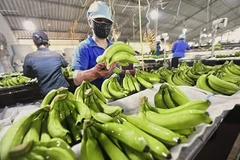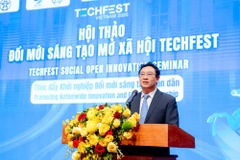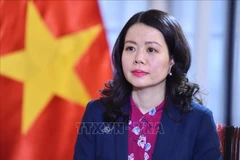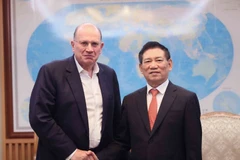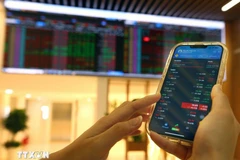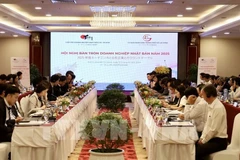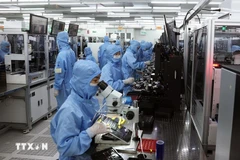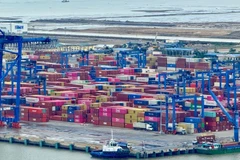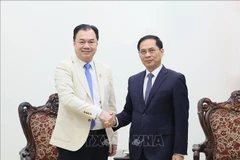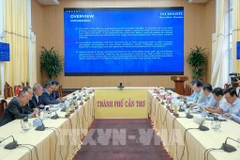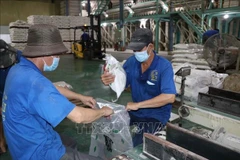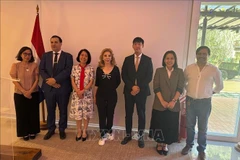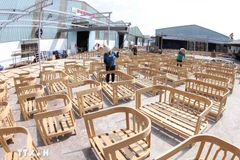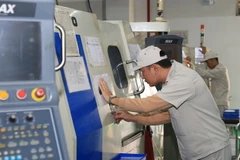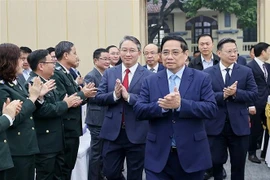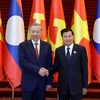United Nations Resident CoordinatorJohn Hendra affirmed the UN was ready to support Vietnam to meet thevision set out in the draft Socio-Economic Development Strategy (SEDS)and the Socio-Economic Development Plan (SEDP) for 2011-2020, ensuringthat all Vietnamese people can benefit fully from the country’scontinued progress.
Masat Miyazaki, Division chief of theInternational Monetary Fund’s Asia and Pacific Department, stressed hisinstitution’s continued commitment to providing Vietnam with sincereadvice and support in the future.
As largest provider of aidand its second largest investor and trading partner, a representativefrom the European Union in Vietnam said that the EU will remain,throughout both the challenges and the successes, a firm and committedpartner of Vietnam in its economic, social and political progress.
In addition, representatives from international organisations gave important recommendations to Vietnam .
Asrecognised in the draft SEDP and SEDS, economic growth was necessary,but not sufficient to achieve balanced and inclusive development, JohnHendra said.
“It is crucial that Vietnam not repeat themistakes of other countries, including those which have wronglysacrificed their natural resources due to a single-minded focus ongrowth. Instead, Vietnam should aspire to join the group ofcountries that have opted for a green growth model and are creating aclean, low-carbon economy,” he said.
Miyazaki said Vietnamneeds to give priority to addressing emerging risks to its macroeconomicstability, further tighten monetary policy and lower its publicdebt-to-GDP ratio.
“Further reforms are needed to safeguard a financial system that is robust, efficient, and market-based,” he said.
USAmbassador to Vietnam Michael W. Michalak applauded the Government’spriorities for “breakthrough” socio-economic progress, includingimproving infrastructure, human resources, and market-orientedmechanisms.
Reform of the state sector is essential to improved productivity and efficiency of investment, he said.
In2010, the US spent over 184 million USD on economic reform,education, health and support for vulnerable groups, the the ambassadorsaid.
Sharing the view, Japanese Ambassador to Vietnam TanizakiYasuaki said that mobilising capital from the private sector was a vitalelement for development and the Vietnamese Government needed to realisethe Public-Private Partnership (PPP) model.
He stressed Japan ’s readiness to assist Vietnam in the PPP field./.
